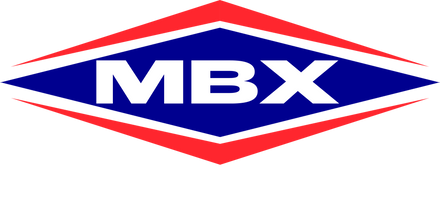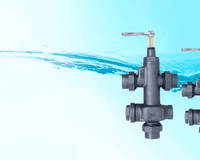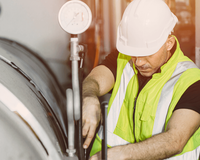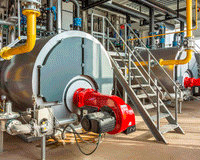 In industrial processes, steam generated by boilers is one of the most important inputs. However, every boiler is subject to certain risks that can compromise its efficiency and, most importantly, operational safety.
In industrial processes, steam generated by boilers is one of the most important inputs. However, every boiler is subject to certain risks that can compromise its efficiency and, most importantly, operational safety.
Therefore, if some precautions are not taken by the industry, the risks can be great. To avoid such risks, it is necessary to adopt some precautions that, when carried out correctly, make all the difference.
See the 5 main precautions to keep your boiler working properly.
1 – Perform preventive and scheduled maintenance on your boiler
Industrial boilers are machines capable of producing impressive amounts of heat and water vapor in almost continuous operation, often without any downtime for a long time.
For this reason, maintenance must be properly scheduled to avoid causing harm to the activity. The option for preventive maintenance is always more advantageous, as it allows you to anticipate possible failures, in addition to ensuring that the equipment operates at its maximum performance.
Furthermore, preventive maintenance, when carried out correctly, reduces the intensity of wear, defects and other problems that boilers may present.
Therefore, to avoid major problems during maintenance, it is suggested to always hire a service from a third-party company that has the correct specialization in the area and that follows the recommendations of NR-13.
2 – Be very careful with the treatment of boiler feed water
One of the most important points in boiler operation, aiming at its longevity, efficiency and safety, is to give maximum priority to the quality of the feed water used in the boiler.
Therefore, regardless of the size and complexity of the boiler, it is very important to keep the make-up water treatment system up to date.
This concern is essential, because when water is not correctly treated, some problems can arise, such as corrosion and incrustation.
Corrosion is the partial degradation of the metal parts of the boiler (mainly its tubes), which can lead to the equipment breaking. Scaling is the deposit of solid material on the heat exchange surface, forming a layer that reduces the “tube cooling rate” by the water, causing overheating and consequent weakening of the material.
To prevent corrosion, it is necessary to properly deaerate the water (remove oxygen from the water). To prevent the accumulation of solid deposits in the pipes (scaling), the best way is to reduce them to acceptable limits.
3 – Prioritize employee training
In any industrial process, there is no point in using the best boiler if there is no qualified employee to operate it.
Therefore, the human factor represents one of the most important points in keeping any boiler operating up to date, and for this reason, it is highly necessary to prioritize employee training.
This requirement is even set out in NR-13, which requires that the operator have a Boiler Operation Safety Training certificate. This training must be comprehensive, consistent, practical and formally applied by professionals trained for this purpose.
4 – Perform daily interlocking tests on control and safety instruments
All boilers feature modern safety devices that are interconnected and prevent the equipment from locking.
Therefore, to ensure that these devices work correctly, it is recommended to test them daily. To do this, simulate alarm situations and check whether the control and alarm systems respond as expected.
It is also worth mentioning that the number of safety instruments and routines varies for each boiler, but at least the following must be tested:
- Water level interlocking;
- High steam pressure switch;
- High gas pressure switch (for gas boilers);
- Flame sensor
It is also important to create a maintenance and calibration routine for the instruments, always keeping them calibrated.
5 – Pay close attention to cleaning the boiler tubes
Every boiler requires high temperatures so that the steam that travels through the pipes reaches its destination. However, over time, the pipes naturally become encrusted, and begin to accumulate dirt to the point of compromising the equipment's operation.
Therefore, to keep the boiler operating properly, it is important to keep the flame tubes and heat exchanger tubes present in this equipment clean.
The most common method for cleaning the boiler is manual, where employees clean each tube at a time. This cleaning process, in addition to being time-consuming, is not very effective, as it does not eliminate all the scale from the tubes.
But with the advancement of technology, the boiler cleaning process has also gained important allies. One of these allies is the MBX 2000. from MBX MÁQUINAS . This equipment is designed to perform internal cleaning of boiler tubes of the most varied diameters.
The MBX 2000 allows just one person to clean the inside of the steel tubes, increasing safety and being extremely versatile, as it has a flexible hose that cleans each tube.
As long as the safety instructions are followed, this cleaning is risk-free and reduces boiler downtime.
Keep following the MBX Blog and see tips, recommendations and other factors related to the industrial environment.




